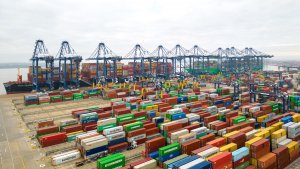Brexit represents a financial windfall for the flexible workforce; they just need to sit tight, says James Poyser, CEO of inniAccounts.
The Flexible Workforce Will Thrive Under Brexit
Brexit represents a financial windfall for the flexible workforce; they just need to sit tight, says James Poyser, CEO of inniAccounts.

As you can imagine, accountants like certainty and news that Brexit was being delayed sent a few ripples through the office. The overwhelming question being where does it leave us?
It’s not an easy question for any business to answer. The delay is clearly presenting a difficult few months ahead for sectors like manufacturing and the scientific communities who are turning to stockpiling.
I see no change in that holding pattern. Reading the headlines it seems that a delay merely prolongs the agony and gives export customers carte blanche to avoid committing to major purchases.
But for our industry of flexible skill, we see a different point of view emerging.
In the last three years Britain’s businesses have been putting aside cash reserves ready to manage the consequences of Brexit. It’s to be expected. However, according to the ONS figures released in March, British businesses are sitting on a record-breaking pile of cash.
Private companies have tucked away £747bn. You can see there was an acceleration in the rate of saving after the March 2016 referendum result, and I’m sure I won’t be alone is saying that we will certainly continue with our strategy to set aside spare cash where we can.
For anyone self-employed and contracting their expertise, or providing consultancy there is reason to be hopeful that the next six months will be steady and come November 1st buoyant.
Why do I say that? Well, from all I have read and the conversations I’ve had with all sorts of scale ups and large firms, I think there’s reason to believe that the reserves represent a real ‘Brexit dividend’, and history shows that the UK's flexible workforce will be first in line to benefit.
Why? Firms have been scaling back and have been reluctant to invest in full time heads or massive projects. The delay won’t help that, but for contractors it’s good news.
It means there will be more short-term projects initially as businesses manage risk and skills to get the small projects that have to be done regardless of project done.
Come October, when the deal is done and leaders can truly plan with confidence, there will be even more work available to contractors to get larger projects off the ground and start spending the reserves.
Back in 2008 post the recession we saw a direct correlation between business confidence increasing and the contractor sector growing.
There’s no reason why that won’t happen again, only this time there is also a marked difference in the employment statistics – unemployment figures are low thanks to the way flexible working has become mainstream.
It’s a lifestyle choice chosen by far more people who have professional skill yet need to balance children or elderly relatives, and those who want to do more of what they love – why not retrain as a pilates instructor whilst using your skills as a marketing?
Our research shows that 30% of people who are independent consultants say that they are doing it because they have the flexibility to choose what they do and when they do it, and a further 10% say it’s so they can do things like volunteer.
A pool of talent and wealth of projects means that the reserves will be put to good strategic use quickly when the future is certain. In fact, some 40% of contractors see that Brexit will deliver more opportunity for them and 20% think they’ll be able to raise their rates as a consequence – a neat illustration of supply and demand.
Closer to home, we still have a three to five year plan to deliver regardless of Brexit and we’ll be investing in the projects that will make that happen. We’ll use flexible skill to do it and we’ll continue to prioritise the things that we are sure will contribute to a post Brexit growth.
What will help is if the next six months will be used to deliver the right Brexit.
For scaling businesses and start-ups to become unicorns, and for multi-nationals to thrive and stay headquartered here, it’s vital that politicians navigate Brexit in such a way that they jump-start confidence and avoid recession.
We’d like to see things that should be happening as a matter of course: SMEs getting better tax breaks for innovation, access to grants, better provision and rates on business properties (all too many viable places are being turned into flats) and more incentive from banks to loan without expecting you to put your house on the line.
Get that right and the windfall waiting for British business and our homegrown flexible talent could be great.
Thanks for signing up to Minutehack alerts.
Brilliant editorials heading your way soon.
Okay, Thanks!


